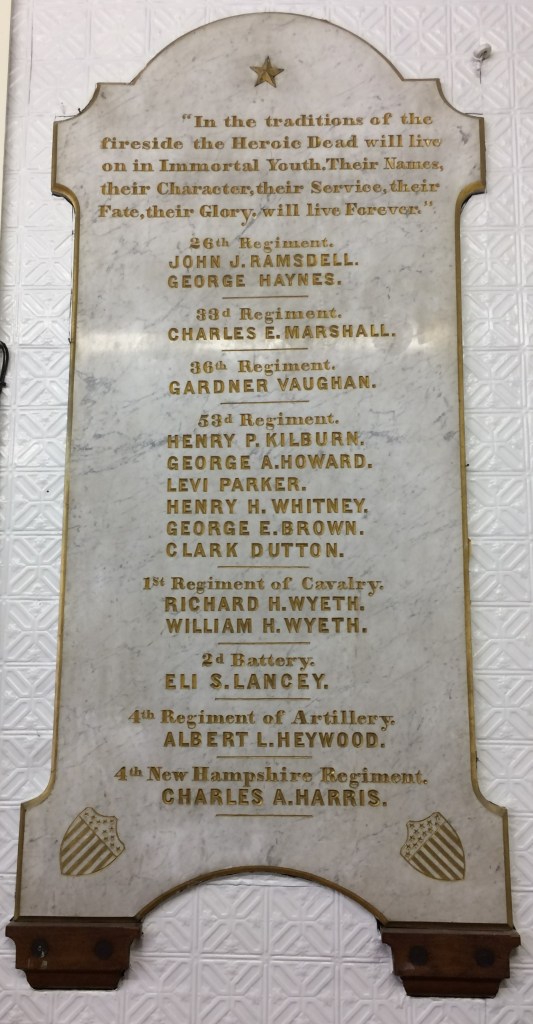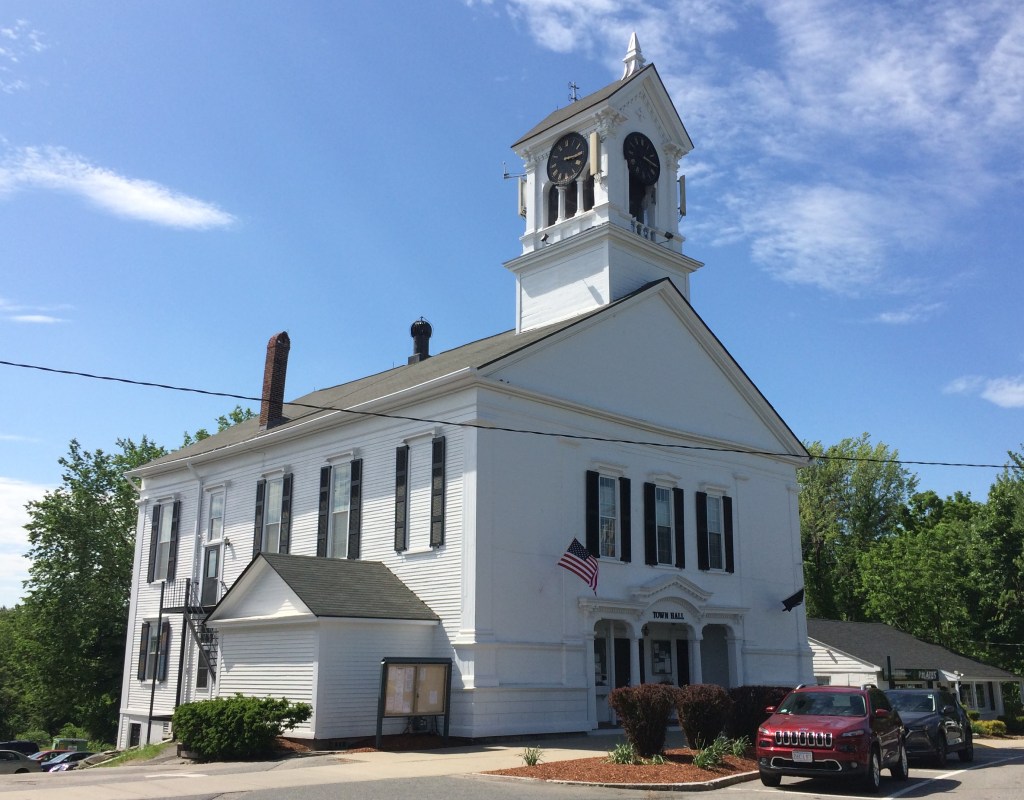


Location: In Town Hall, 17 Main Street, Lunenburg
Coordinates: 42°35’43.7″N 71°43’30.2″W
Date dedicated: November 1868
Architect/designer/manufacturer: William F. York of Nashua, NH, stonecarver
In 1868, Lunenburg completed and dedicated its new town hall. The memorial tablets were installed in November of that year.[1] They are carved of white Italian marble and record the names of 29 men who died in service. The primary inscription reads, “The town of Lunenburg erects these tablets as a memorial of its citizens who enlisted for the defense of the Union their fathers formed, and who died that the Republic might live.” The second inscription is a quote from a speech by Governor John Andrew (this is not noted on the tablet) which he gave upon the return of a badly decimated Massachusetts regiment: “In the tradition of the fireside, the heroic dead will live on in immortal youth. Their names, their character, their service, their fate, their glory will live forever.”[2] A total of 102 Lunenburg men served in the war.[3]

The 53rd Massachusetts Infantry stands out on the tablets with a total of six Lunenburg men who died serving in that unit—more than any of the other units. The 53rd Massachusetts was recruited from the towns of north-central Massachusetts. In all, 14 men from Lunenburg served in that regiment.[4] The 53rd Massachusetts was shipped to Louisiana and took part in the assaults on Port Hudson, the last Confederate stronghold on the Mississippi River. Capt. John G. Mudge of Petersham wrote a poignant account of the regiment’s charge during the second assault, leading a portion of the attack. According to Mudge, after rushing to within about fifty feet of the Confederate entrenchments, the regiment was finally ordered over the parapet and into the enemy’s works. Mudge, in command of Company F, noted that his company rose up and “charged up the parapet until nearly every man who reached the brow of the hill was either killed or wounded…Col. Kimball…seeing us fall back ordered me again to charge. I replied that I had not a man standing to make a charge. Oh, what a sad sight and a painful time I had in dragging out the wounded of my brave company. Never can I think of that sad scene and he happy.”[5] About a dozen Lunenburg men were involved in that charge with the 53rd Massachusetts and of them two were killed.
[1] Boston Semi-Weekly Advertiser, November 11, 1868, 4.
[2] Fitchburg Sentinel, November 7, 1868, 2.
[3] G. Barry Whitcomb, Introduction to Lunenburg, (Charleston: Arcadia Publishing, 2001).
[4] Massachusetts Adjutant General’s Office, Massachusetts Soldiers, Sailors, and Marines in the Civil War, (Boston: Commonwealth of Massachusetts, 1931), vol 4.
[5] Mudge quoted in Charles Carleton Coffin, Stories of Our Soldiers: War Reminiscences, (Boston: Journal Newspaper Co., 1893), volume 1, 184.